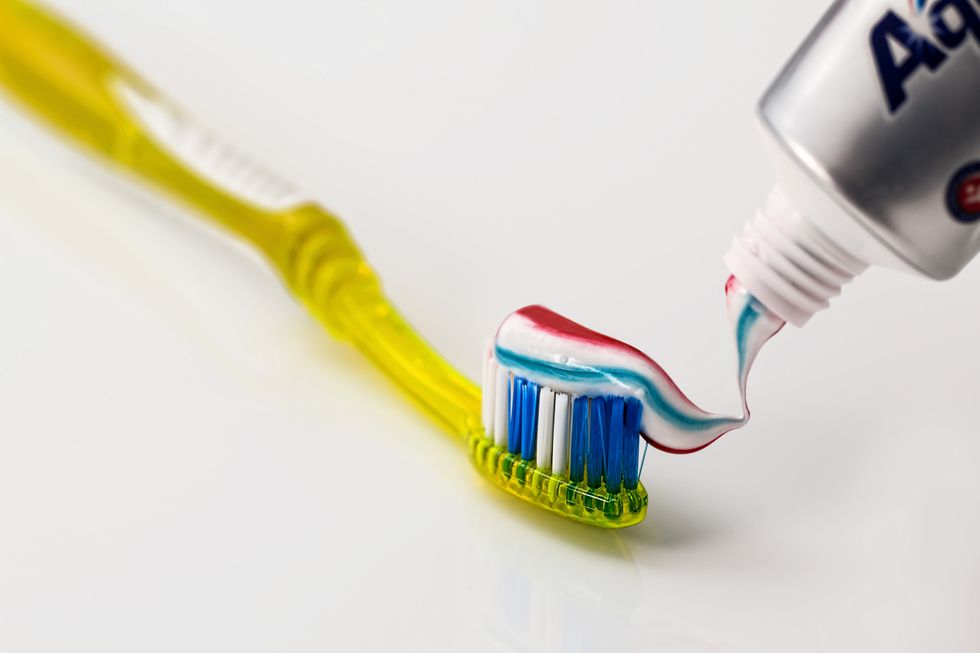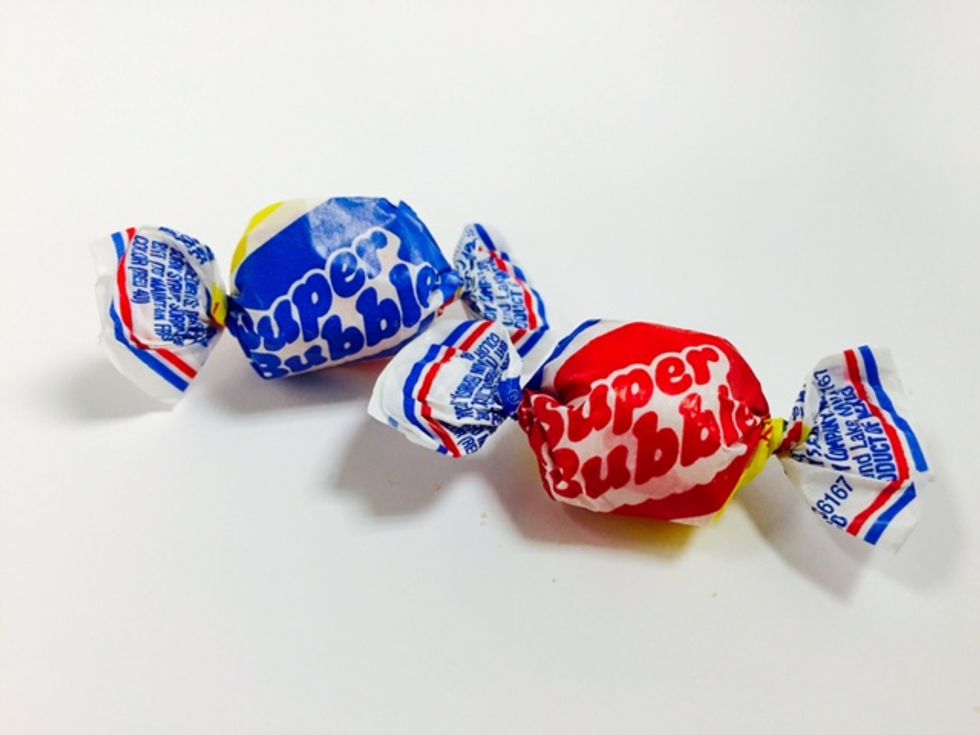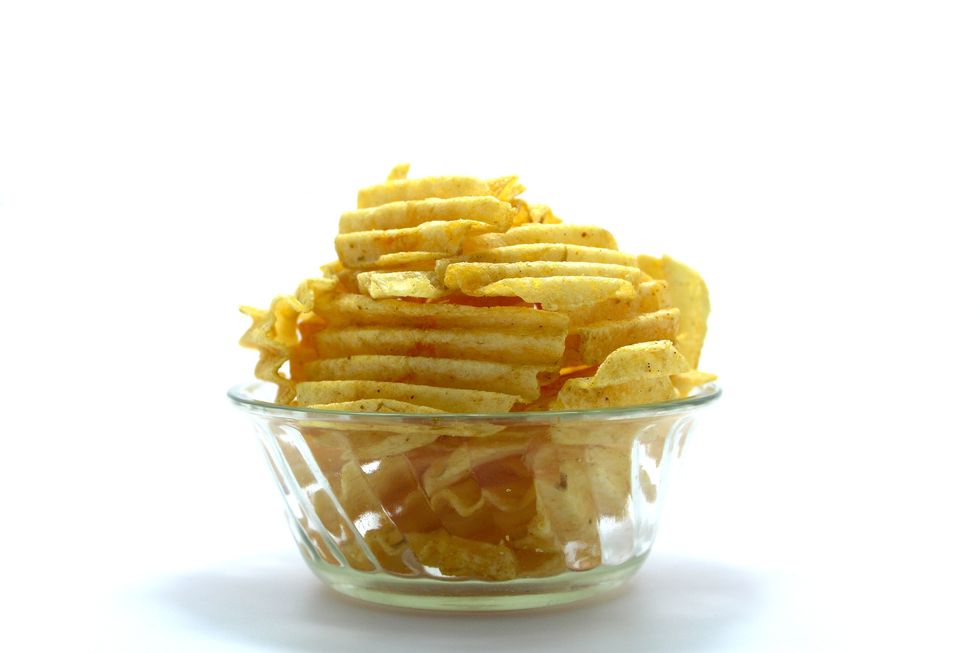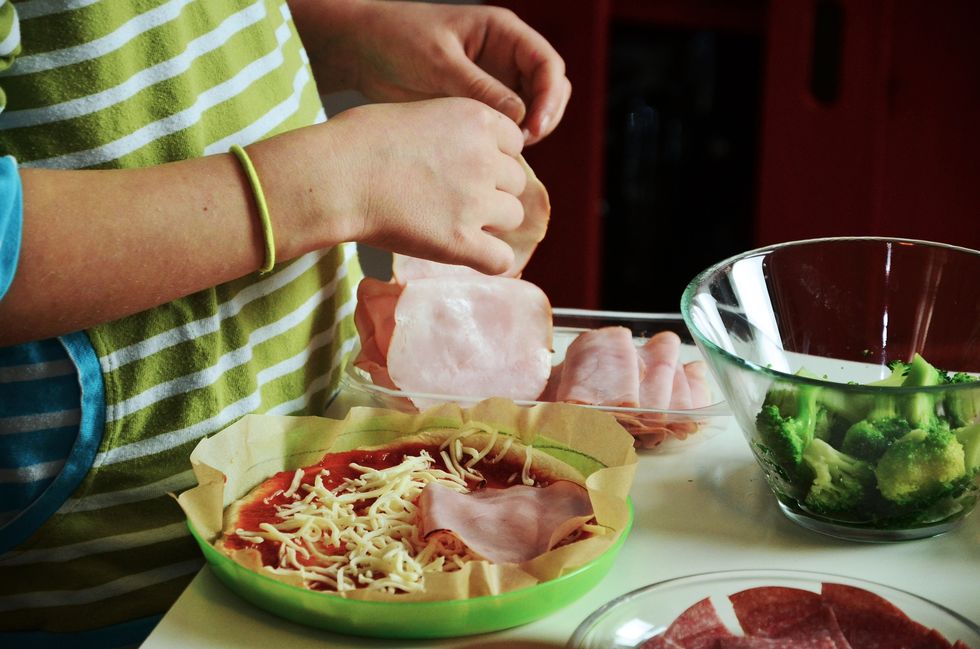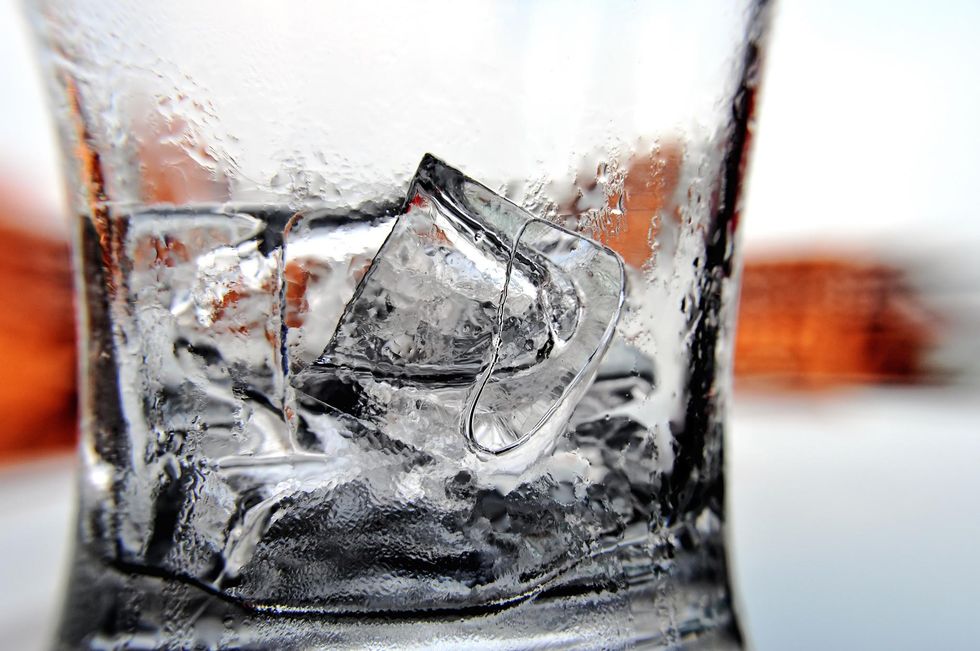Afternoon cravings and binge-eating while watching TV shows, scrolling through your social media or browsing the web can be hard habits to break. This article will make putting down the snacks so much easier.
1. Brush your teeth.
Hear me out on this one. If you brush your teeth immediately after each meal, your mouth will be left with the fresh taste of toothpaste which will affect the taste of whatever you eat next, making eating a lot less appealing. No one wants to eat right after brushing their teeth and freshening up their breath.
2. Chew gum!
Chew on a piece of gum instead. The act of chewing on a sugary piece of gum may help deter cravings for candy or some sugary treat. Gum has very few calories and won’t leave you with a stuffed stomach and many regrets in the end.
3. Carry mints.
Pop a mint into your mouth instead when you have the urge to snack on something.
4. Never eat and perform mundane tasks at the same time.
Snacking while you watch TV, play video games, or even do something productive like homework, is a sure-fire way to overeat without even realizing it. While distracted with whatever task you’re doing it becomes very easy to mindlessly eat and not realize how far down the chip bag you’ve gotten until it’s too late, and your stomach is beginning to hurt.
5. Beware of boredom snacking.
A common cause of eating too much occurs when people are bored and don’t know what to do, so they find themselves drifting towards the fridge when they aren’t even hungry.
6. Ask yourself if you are hungry enough to eat an apple, plain salad or raw veggies?
Before you head into the kitchen or begin scavenging the pantry, ask yourself if you are in the mood for eating an apple or a salad. If not, then you aren’t really hungry and instead are likely craving a specific taste like salt or sugar.
7. Just. Drink. Water.
I know, I know, you’ve probably heard this one a million times already, but that’s because it actually works. Dehydration can be one of the major reasons you still think you’re hungry when in reality your body is just trying to get some H2O into its system. Even if you don’t manage to drink the recommended dose of several glasses of water a day, simply challenge yourself to drinking at least one full glass of water before every meal or snack. This will stop you from mistaking dehydration for hunger and allow your stomach to feel more full before you start eating so that you don’t eat as much as you would have otherwise.
8. Think before you act.
Don’t allow yourself to mindlessly eat just because the food is there. Force yourself to stop for a good minute and consider what you are about to consume. Ask yourself questions like, “Am I really hungry right now? How recently did I last eat? Does this food have any valuable nutrients in it that I actually need right now? Is this going to set me closer to my goal?” Once you’ve reminded yourself of the reasons why you are trying to eat less, and have thought about the consequences, it becomes easier to say no to certain foods and put down snacks before you’ve eaten too much.
9. Go outside!
Leave the house so that you don’t have the temptations anywhere near you. Plus, your body could always use the freshly polluted air anyways. Go for a walk or relocate your work to the library or some place that doesn’t have food available for purchase.
10. You can't eat what you don't have.
If you are worried about overeating, don’t by foods that will do the most damage to your body if eaten in bulk. When you go shopping avoid the salty snacks that are easy to just grab and eat without much thought. Buy as much fruit as possible as this is something that can be eaten raw, without any preparation or excessive time consumption. It is much better to eat too many grapes than too many chips. Also, if you know you are prone to succumbing to a specific food, don’t buy it all, so that way when you get the urge to binge-eat you won’t have that food as an option at all which will force you to go with the healthier alternatives.
11. Don't eat directly out of the packaging!
Pour all of your snacks into a bowl or small cup before you sit down and enjoy. This way you moderate yourself and avoid plowing through the box of crackers in one day.
12. Cook a proper meal rather than settling for a quick alternative
13. Tell someone your goals so they can help discipline you
By simply telling the people around you about your goals concerning eating/dieting, they can help remind you of what you've been striving for the next time you're about to fall victim to sugary snacks. Even if they don't give you a lot of support, vocalizing your goal to the people you see every day will make you more conscious of it when you're around them and help you to stay on track.
14. Chew on ice
Keep a glass of ice with you, so when you get the munchies you can distract yourself with ice instead of more food that you know you don’t need to be eating. Some people simply desire the sensation of eating something when there body isn’t in need of any food, so eating ice can help you to feel like you ate something and succumb the cravings. Plus, your body could use the water.
15. Don't be too hard on yourself
Beating yourself up over failing to maintain the strict diet you set up for yourself or hating yourself for not meeting the goals you have in place are bad ideas. Eating healthier should be a positive experience, not a degrading or gloomy one. Give yourself the encouragement and positive pep talk it needs to keep trying. Breaking old eating habits can be difficult at times so don’t be too hard on yourself and just give it time. You know that you can do it, so don’t rush the results.


